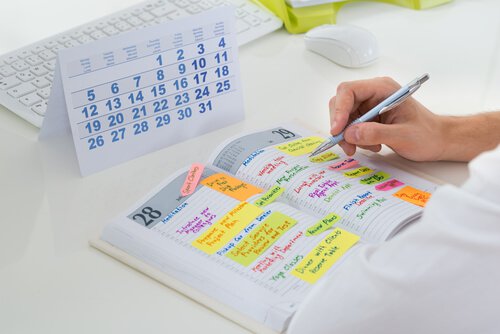Anxiety and Stress: Our Worst Enemies

How to pay the mortgage, what to cook for dinner, having to pick up the kids from school, remembering to congratulate your friend on their birthday, handing in a report at the office on time, worrying you’ll be late for a meeting because of traffic…This is anyone’s day to day. But the stress and anxiety we experience because of these daily routines are toxic to our minds and bodies.
Stress happens when we perceive a situation or event as threatening or overwhelming in light of our resources. Oftentimes these situations are related to changes that make an over-exertion necessary and put personal wellbeing at risk.
“Remove from your life anything that causes stress and erases a smile.”
-Paulo Coelho-
Anxiety, however, is a natural activation reaction that doesn’t depend on a concrete event, but is produced in spite of the disturbing event having disappeared. In this sense we continue feeling panic or a negative emotion in relation to our job, our relationship to our partner or whatever triggered it. Anxiety sets in when excessive stress lingers for a long time producing different negative feelings and effects on our health.
Stress and emotions
Neuroscientists at New York University conducted a study which showed that therapies for emotional problems such as fear or anxiety can have limited results because of stress, even at moderate levels. Elizabeth Phelps, the study’s principal author, explained that scientists have long suspected that stress may reduce our ability to manage emotions.

In the treatment of emotional problems, therapists sometimes use cognitive restructuring methods that help patients to think and behave in a different way so as to modify their emotional response. The New York University experiment involved studying whether those techniques worked in real life under everyday stress.
To do that, researchers generated fear among patients by showing them pictures of snakes and spiders. Some were accompanied by a light electric shock and others were not. In this way they conditioned patients to feel fear when faced with these images. They then showed participants techniques to lower the fear the experiment caused.
The next day, the participants were divided into two groups: one put under stress and the control group. The stress group dipped their hands in freezing water for three minutes and the control group in warm water. Then they measured all the participants’ saliva cortisol levels.
Cortisol is produced in response to stress, and the stressed participants showed higher levels of cortisol than those in the control group. In addition, when they looked at pictures of snakes and spiders again, the control group showed a lower fear response.
How to lower stress and anxiety
We all experience stress in our day to day. We run from one place to the next, we get tired, we arrive late. But what’s important is preventing that stress from lingering and leading to something more serious. Below, we offer some techniques to manage and lower stress and anxiety, that can be beneficial to our health.
- Play a sport. One of the main recommendations to lower stress levels is to practice sports. It’s not about working out for hours and hours at the gym, but rather moving, walking at a fast pace, going out for a run, taking a stroll in the countryside. Think about what you like to do and do it. Physical exercise releases endorphins, known as the “happiness hormone” which will make you feel better and get rid of stress.
- Manage your time. We all have many chores to take care of during the week. When we don’t plan time for each one of them we feel that we haven’t accomplished anything. It’s about setting up a weekly plan and organizing each task around the time when we’ll do it. Bear in mind that during that period there should be no text message interruptions, calls, etc. There may be unexpected emergencies to address, but not every day.

- Learn to say no. Sometimes we are afraid of saying no, to avoid hurting someone else or fear their reaction, but we hurt ourselves and we end up doing things we don’t want to do. Try to learn how to say no to the tasks that take up your time without contributing anything. Do not be afraid because usually people understand and respect our decisions.
- Set priorities. Another mistake we make in our day to day is not prioritizing what can wait and what can not, what is really important and what is not. In that sense, knowing how to prioritize will enable us to do things in order and avoid the stress of having a thousand tasks without being able to finish them all.
This text is provided for informational purposes only and does not replace consultation with a professional. If in doubt, consult your specialist.








